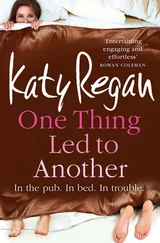WHEN THEY GET BACK TO HER HOUSE, Armando and his helper, Faustino, are just finishing up, loading the heavy mower back into the truck bed.
“Armando,” she says, “I need to show you something in the backyard,” and she hands Ricky the three books she chose for him. “You bring these back next Friday and we’ll get three more.”
The boy takes the books but doesn’t seem happy about it.
“Say thank-you to Mrs. Dugan,” Armando tells his son. The boy mumbles something, but Trudy isn’t interested in gratitude.
In the backyard, away from Ricky and Faustino, Trudy tells Armando what she suspects he doesn’t know. “Your son can’t read, Armando. He doesn’t understand the first thing about letters and sounds and how they make words.”
“Mrs. Dugan, he’s only eight. He has time to learn all these things.”
“No, what I’m telling you is that he’s not going to learn these things without some help. Can you help him with that, or your wife?”
Armando shakes his head. “Maybe if he was learning to read in Spanish, then—”
“Bring him with you every Friday. We have the summer. Every Friday. All summer.”
“No, Mrs. Dugan, I couldn’t—”
“You want him to fail in school? You want him to drop out? Because that’s what happens to kids who can’t read.”
“No, of course not, but I couldn’t ask—”
“You’re not asking. I’m telling you — bring him to me.”
And they look at each other in silence. Trudy’s gaze is clear and determined and, Armando suddenly sees, eager. He understands she wants to do this for him, for his son. For herself as well.
“Thank you” is what he says.
So now, on Friday afternoons when he looks into Trudy’s kitchen window, he sees she’s not alone. She’s sitting at the kitchen table, head bent over a book, busy teaching Enrique how to read. His son squirms and rests his head in his hand and sighs a lot — Armando can tell he is anything but pleased to be there — but Trudy pushes ahead and Armando knows that this is the summer that his son will learn something new. He will learn to read.
IT IS NOT A NOBLE SENTIMENT TO DETEST one’s neighbor — the rational part of Trudy’s mind knows this. Hatred leads to no good. Unfortunately, these days rationality holds little sway on Trudy’s emotions.
Until a year ago, Trudy would have described herself as the most sensible of people. Just look at my life , she would have argued a little too proudly — a practical job as head librarian, a thirty-two-year marriage to her first and only love in which she was faithful and happy, and she would have bet her last dime that Brian, her husband, would have said the same. Together they crafted the life that they, and in Trudy’s exacting opinion every sane person, would have wanted — a judicious, measured life.
And then all that changed in the beat of a heart. One September morning, when the Santa Ana winds were leaching all the moisture out of the air, Brian went out for his regular three-times-a-week jog and didn’t come back.
In the early months of her widowhood, during those brutally hot September and October days, Trudy was barely functional, managing only to get herself to the library each day and back home late each afternoon. Then, once the front door was closed and no one could see her, she would collapse into her living room armchair and stare out the front window until it was dark enough to climb into bed.
Through those awful autumn and winter months, sitting in the dark, in the living room, evening after evening, playing back in her mind every kind and dear thing Brian ever did for her, Trudy got an eyeful of the new neighbor who had moved his family into the house next door only months before Brian died. And an earful. She learned right away that he is a yeller, a screamer of ugly words, and that she is in for an entirely unpleasant experience living next door to this man.
When Brian was alive she had easily ignored the commotion next door because what she and Brian had built together in their green-shuttered house didn’t leave any room for animosity. She didn’t have the energy or the inclination or the taste for it.
But now, more than a year after Brian’s death, she’s found that life is just chockful of things to rail against. Take the park situation. Even Trudy, who disdains the word “beautiful”—“Rendered meaningless by overuse,” she complains — has been heard to admit that the park adjacent to her library is “beautiful.” Set back from the street so it seems slightly hidden, ringed by hundred-year-old trees that keep the park cool and dappled in sunlight, Sierra Villa Park is an oasis of calm. And so, when the city council raised the question of selling the land to developers, there was a hue and cry in the neighborhood. Condos where neighborhood children now play soccer?! Concrete where the dignity of ancient oaks provides shelter for toddlers to play and for weary mothers to grab a few minutes of respite?! Trudy is incensed! She’s seen the architect’s drawing of the proposed complex. It makes her blood boil.
Pushing aside her natural reluctance to get involved, Trudy decides to draw up a petition. If Brian were alive, he’d tell her to let the politicians handle it. Maybe, if she pressed him, he would have made a call to their city councilman, Scott Thurston, who lives around the corner, and registered his mild objection. But Brian is not here. He has left her to her own devices, and her own device is a neighborhood petition. That’s how her disdain for her neighbor, acquired during those months after Brian’s death, turns into full-fledged, lip-licking fury.
Brian had been fond of the ancient Russian woman who had lived next door to the Dugans since the day they moved in, her small ranch house’s driveway abutting theirs. When Vivianna reached her late eighties and slowed down quite a bit, Brian added chauffeur duties to the list of tasks he did for her, a list that included grocery shopping, lugging the trash cans back and forth from the curb on garbage day, and watering her patchy lawn. Her grown children had been making noise for some time about how their mother couldn’t take care of herself anymore, a sentiment Vivianna disdained. She told Brian that she planned to lock all the doors and windows if they ever came for her.
And they did. The night Vivianna started a fire in her kitchen, locked doors were no impediment to the firemen who burst through to put out the flames. Behind them came Russell, Vivianna’s son, who used the opportunity to take her away. Too quickly, it seemed to Trudy, he rented an industrial Dumpster, parked it in her driveway, and filled it with a lifetime’s worth of memories and debris, indiscriminately tossing out photo albums alongside mountains of saved plastic bags, gorgeous beaded gowns long out of style along with broken furniture. Both Brian and Trudy had to turn away as the workmen piled up Vivianna’s life, higher and higher in the Dumpster. “Sadder and sadder,” Brian said, and he was right.
The son and daughter had the house cleaned and painted and then sold it to the Yeller who lives there now. His name is Kevin. Trudy sometimes hears the wife calling him, “Kevin Doyle!”
“He looks like a giant rodent,” Trudy tells her son, Carter, during his dutiful Sunday afternoon phone call. “This guy who moved into Vivianna’s house. Pointed nose, beady eyes, and an overbite.”
“Now, Mother …” Carter says. Although he restrains himself, she can hear the tsk-tsk he’s desperate to make. She knew he would admonish her. Since Brian’s death, their weekly phone calls consist of her complaining and his admonitions. The interaction is satisfactory to neither but familiar by now and thankfully, Trudy thinks, short.
Читать дальше












